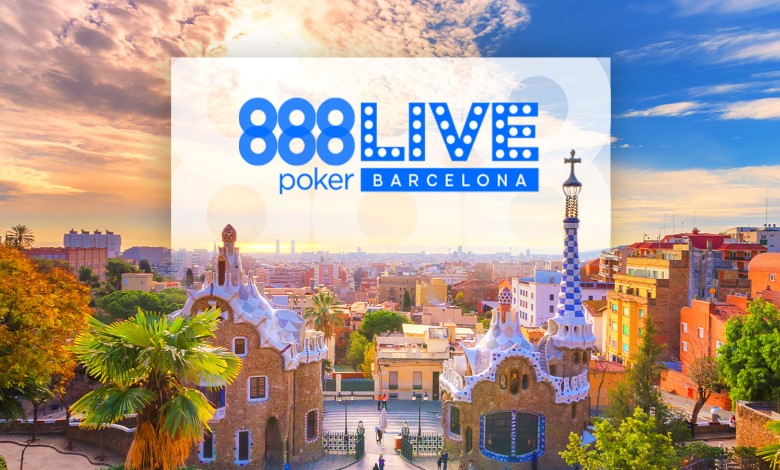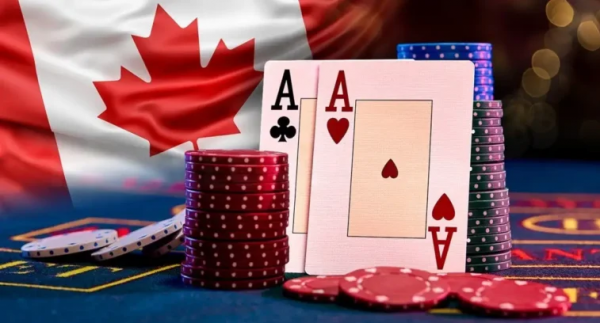When you work for PokerStars, you’re not allowed to play there. What’s more, once you leave you can’t play for real money again until you’ve been gone for at least three months. I left the company at the end of 2019, so having my playing privileges reinstated just when the first national UK coronavirus lockdown kicked in was welcome timing.
Without much work to do during the lockdown, and with my real money account active once again, I scratched an itch by running a small, online poker home game (see Part 1). Over those long, boring months I kept noticing that the problems our club faced were similar to those facing online poker as a whole. In fact, the more I thought of it, the ups and downs of our little club almost seemed like a microcosm of the story of online poker itself.
The club had grown to include friends of mine from all over, as well as plenty of strangers I was getting to know better at the tables each week. Great performances were lauded, lucky streaks decried, characters had been established and narratives formed; the club was developing its own culture.

Poker Culture
From the Mississippi steamers to Discord channels, wherever poker has been played there’s been a notable culture around it. My own passion for poker goes back to the turn of the millennium, when poker culture meant Rounders, Late Night Poker and low-definition CD-ROMs of WSOP coverage.
It felt more cult than movement. In the post-Moneymaker world, though, poker culture became something else entirely. Forums like CardsChat gave players a place to banter, boast and bitch, while tales of high rollers and Hollywood home games added a dash of aspirational envy to the mix.
You didn’t need to be a high stakes regular to hear about things like the ‘Durrrr Challenge’ or the mysterious tales of ‘Isildur1‘. Stories like that were discussed all over social media and covered by some of the best gambling sites. We knew who was the biggest tournament money winner, who had the most bracelets, and who had beef with who. Then Twitter and Twitch happened, bringing the top and bottom of the poker world together like never before.

Viktor Blom, aka Isildur1, brought some swagger to 21st century poker culture. | Image credit: Danny Maxwell
While always friendly, the culture of the Lockdown Club wasn’t just one big happy family. Players belonged to various different factions, depending on how they had found the group or who had initially invited them. Some appeared to be mysterious lone wolves who no one seemed to know, others were joining in video chats or other online groups to enjoy each others’ company while they played. Nicknames were coined; reputations established; players fought back from a single blind, or ‘did the double’ by winning both tournaments in one night, creating more lore for our micro world.
In my own small sub-group of friends I saw old rivalries reignited and decades-long resentments bubble to the surface. I’ll confess that one player managed to annoy our little posse to the point where we’d actively celebrate knocking him out. And he was a complete stranger to all of us, he’d just said a few mildly annoying things in the chatbox and had a username that reminded us of someone else we didn’t like. If taking an instant dislike to someone for no reason isn’t reflective of culture, it isn’t 2020.
Of course, ultimately the culture in our club – like in any poker game – was centred around one question: who’s winning?
Technology Giveth…
PokerStars’ software had the technology to answer that question, automatically crunching numbers such as winning percentage, number of KOs, average finishing position, etc., to display a definitive ranking of all members in the club lobby. The trouble was, that functionality wasn’t working.
I assumed this was due to the increased demands on the PokerStars home game software, thanks to the lockdown, but in all honesty I preferred it broken. It seemed obvious to me: move a losing player’s results from the private to the public arena, and you probably won’t ever see them again. The same might even be said for winning players.
The issue cropped up years ago with the growth of Head-Up Displays (HUDs, pictured below): third party software which collects data at the table to provide an at-a-glance breakdown of your opponents’ behaviour, and therefore their playing styles and potential weaknesses.
These are legal to use in most online poker rooms, after being vetted to ensure they remain ‘fair’; the thinking being that if you could take these notes yourself during a game, the software is not giving you an unfair advantage.
But this information can be shared, or even sold, and moved out of the private arena. And then there was the development of predatory ‘bum-hunting’ seating scripts, which would use data from the HUD to identify weak players in the poker lobby (rather than at the table), then automatically seat the user to the left of the weak player – wherever they sat down.
Seating scripts were outlawed, at Stars at least, but as with HUDs the serious damage may not have been caused by their use, but simply due to wider knowledge of their existence. If a new player realises that a) there is a major skill gap, b) they’re on the wrong side of it, and c) they are being hunted, it’s easy to see how that stops being fun.

Learning to interpret HUDs like PokerTracker can be a skill in itself.
Don’t Tap the Glass
The Lockdown Club’s version of this problem came about thanks to the broken rankings. Many players complained to me regularly (in my ‘customer service’ role) about the rankings, that it wasn’t possible to determine once and for all who was in top spot. In a decision that would have a profound impact on the club, a couple of members compiled the statistics themselves.
Their stats broke down the number of tournaments played, in-the-money finishes and total winnings for every member of the club, with players ranked according to cash won. Among the club, the spread sheet was spread. Seeing results in black and white inspired those at the top to gloat, those near the top to compete, and almost everyone else to quit.

For better or for worse, live databases such as The Hendon Mob make players’ results easy to find. | Image courtesy Hendonmob.com
You might think going on a run of zero cashes in 3 months of regular play would cause a player to leave, but it didn’t. What did, was having that information publicly shared. Whether through embarrassment or the realisation that they were simply outmatched, a significant number of members never played with us again.
The games became less attractive in every way: fewer players, smaller prizes, stronger opposition. Getting more than a dozen players for a tournament became a rarity, so most tourney tables ran short-handed until we reached the final nine.
Those members near the top of the rankings would still generally turn out, some as keen to claim a position or two in the ‘league table’ as to win the cash on offer, but each poker night was less well attended, and less fun.
Then came the biggest threat our club would face. And it was the good news we’d all been waiting for.
The Unlocked Club
A few weeks after the club statistics were circulated, the UK lockdown ended. After more than three months of confinement, we were once again able to spend time together with those we’d been missing so badly – albeit with more than a nod to ‘the new normal’.
Those still turning out to play on Mondays and Fridays found that multi-table tournaments were a thing of the past. Now the question was not ‘how many will we get?’, but rather ‘will we get enough to play at all?’. At this point I made a decision the big operators probably wouldn’t have made: I went on holiday.
A few weeks away, in a country where I couldn’t have played online poker if I’d wanted to, were just what I needed. Reunited with loved ones, the precarious state of our Lockdown Club was put in proper perspective.
At PokerStars we’ always been told that our biggest competition was not going to come from partypoker, 888poker or any of the other online operators; our greatest threats were the likes of Netflix, YouTube, Twitch, social media and games like Call of Duty, Overwatch or Hearthstone.

Netflix is an example of the REAL competition that online poker faces.
Attention was the most valuable commodity, and efforts to catch more of it took the form of expensive forays into worlds beyond traditional poker. From new games like Tempest or Power Up, to poker in VR, to a big investment in Twitch, Stars recognised the importance of engaging with these threats head on.
Now that the lockdown was over, our tournament nights were competing with everything we’d all been missing for months. Plus, hot summers are already difficult for online poker platforms, as players head outside and away from their screens.
How was I going to keep the gang playing poker? And really, did I want to?
Endgame
In my absence, a few hardcore players had kept the tournaments running, mostly 3-handed. They made decisions I wouldn’t have made, raising buy-ins and scheduling tournaments every night of the week, although few were played. If a player wanted a cheaper buy-in they’d schedule multiple tournaments to start at the same time, at the different price points. Neither would run.
Cannibalising the potential player pool in this way, along with the saturation, meant it was all but impossible to get enough players registered to the same tourney at the same time, and the games soon dried up altogether. Almost.
Back from holiday and with a two-week poker break under my belt, I was keen to play and, despite myself, took to the group to try and drum up a game. We got five players or so for a short, unexciting tournament which I won, to a chorus of eye-rolls on WhatsApp.
Being the one promoting the games, accepting new members, setting structures and being the general admin is all well and good, but it also doesn’t look great when you’re also the one who’s winning.
I’d been there to run and promote the club because it was fun and I loved connecting with my friends for a few hours each week. Prize money was great, but it wasn’t why we were there. Yet when the controversial and damaging statistics were circulated, there I was at the top of the rankings.
There’s a reason PokerStars doesn’t let its staff play, and when I saw those eye-roll emojis I remembered why. Being the most vocal in inviting players in, then beating them, just looks bad. I didn’t want to be that guy. The club was slowly dying; it was time for me to let it happen.
The Trouble With The Pyramid
In the online poker ecosystem, most players rise until they reach a level they can’t beat. For many it might be the first level they try, but even the top 0.2% of players are going to come unstuck when they reach the top 0.1%. And when they reach that ceiling, many quit. You might say it’s the best players, sat atop the poker skills pyramid, who ultimately kill the game.
So for the sake of a healthy ecology, new players must constantly enter to feed, or feed on, the players around them. In a closed system like our club, where marketing was all but non-existent, new players were not going to join in sufficient numbers, and therefore the writing was on the wall long before the end of lockdown.
So, if my microcosmic experiment burned out, what does that say about the future of online poker?
The answer, as any poker player will be sick of hearing, is ‘it depends’. I can’t predict how the big guns are going to handle the threats posed by AI, but the closer No Limit Hold’em gets to being a solved game, the more we should worry. And it’s hard to argue that day won’t come.
While poker platforms do all they can to bring in new players, landing those new customers is difficult, expensive and fiercely competitive. And they can never, ever stop. That’s the problem that’s been there since the first hand of online poker was dealt, and it isn’t going away.

The Dudes Abide
But you know what? Our little club persists. Out of 50+ members, 3 or 4 – around 5% – still regularly pop up in the WhatsApp group or the club lobby, trying to get a game together, and occasionally they succeed. I know why, and you might too: this game gets its hooks in you.
Playing, talking and thinking about poker was something that helped me through the lockdown, the tedium of which provided the perfect setting for my inner control freak to come out and (organise the) play.
Perhaps it was that same lack of stimulation that set my mind wandering, causing me to see our club as a microcosm of the online poker world, in the first place? Maybe poker will do just fine despite my cabin fever theories. Besides, if 5% of people who try the game fall in love with it, that’s got to be a better conversion rate than something like tennis, right?
I let the club fade because I didn’t have the resources or, once life returned to something closer to normality, the desire to fight the forces working against it. The major poker operators have clearer priorities, as well as the talent and budgets to come up with innovations like Spin & Go or Fast Fold formats to renew and refresh the game. The fact that online poker is now in its third decade should prove that they’re committed to keeping the game going. Perhaps even as much as we are.
So don’t start writing the obituaries for online poker just yet, but keep an open mind as to where this rewarding and stimulating game is going to go next. As for me, I’m grateful for those evenings spent connecting with far away friends at a time when we needed it most, but couldn’t do it for real. And I know that, after months of regular online poker together, we’re all looking forward to our next live home game more than we ever have before.
Maybe someone else can host, though?






